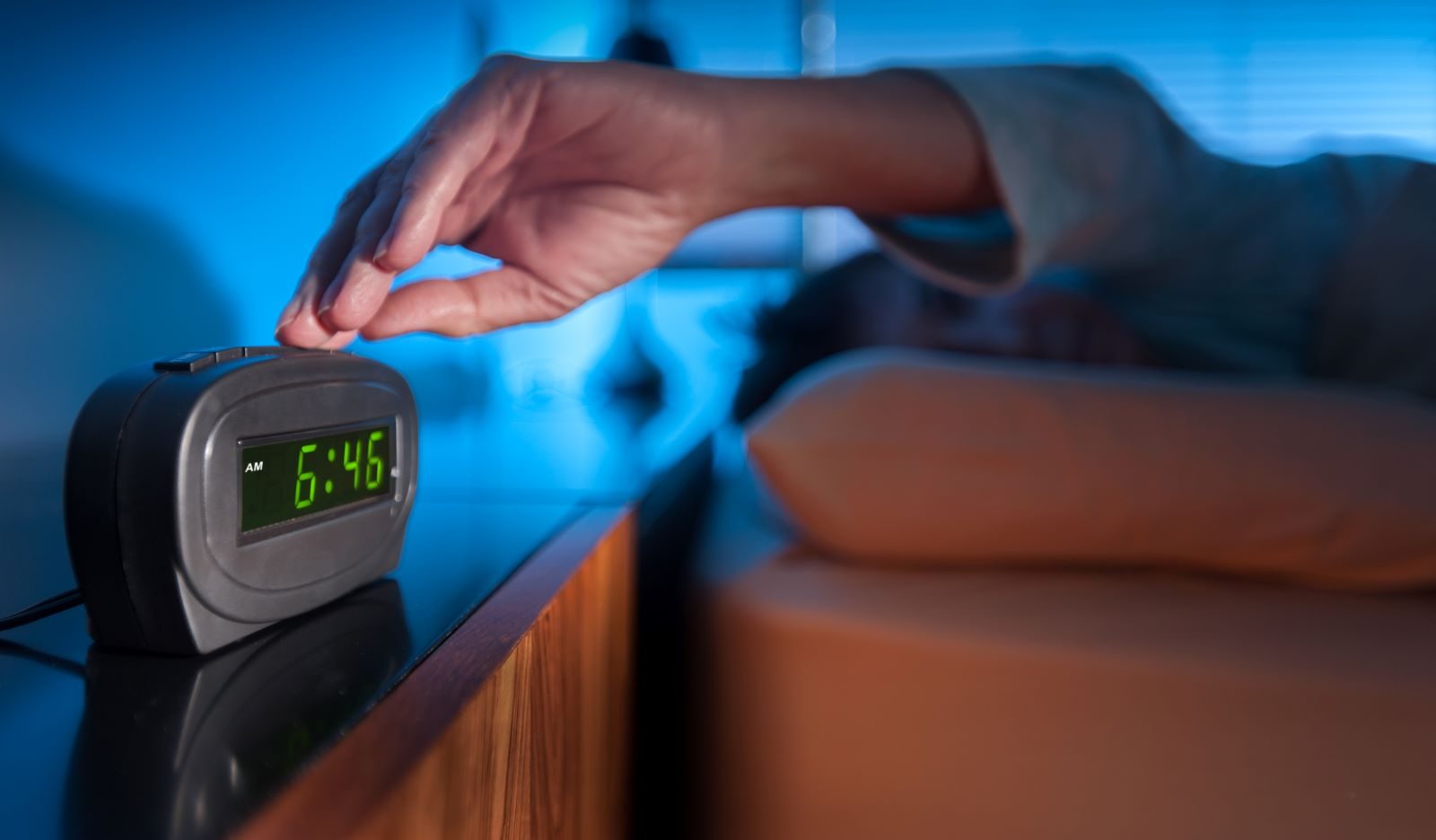We’ve all done it: You set your alarm with grand plans for the morning, but when tomorrow comes, you hit snooze until there’s barely time to brush your teeth.
If that sounds familiar, you don’t need researchers to tell you that snoozing can hijack your day. But did you know it can also be bad for your health?
Consider this your wake-up call.
The snooze button makes you feel more tired.
Pretty much everyone feels groggy upon waking, courtesy of a physiological reaction called “sleep inertia.” Your brain and body are switching gears, and the result can be an overwhelming desire to go back to sleep.
You might assume that, if you give into that feeling and hit snooze, it’s harmless: You’ll just wake up a few minutes more refreshed, right?
Wrong.
“Studies show that, when you hit snooze, it actually makes sleep inertia worse,” says sleep specialist Robert Bundy, MD, medical director of the sleep center at Windham Hospital. “Most people don’t go back into the final, restorative REM stage of sleep. Instead, the body tries to go back into a deep sleep, which is harder to wake up from.”
You’ll feel, and actually be, more tired than if you’d gotten up with your first alarm.
Snoozing today makes it harder to wake with your alarm tomorrow.
Some researchers think that chronically using a snooze button trains your brain to ignore your first alarm, turning a guilty pleasure into a bad habit.
“If you regularly hit snooze, your brain starts to notice,” says Dr. Bundy. Instead of signaling your brain to wake up, the sound of your alarm can trigger a different reaction: Back to bed for nine minutes. Unfortunately, as your snooze habit worsens, so does the quality of your sleep.
Use movement to help with the waking process.
So if you reflexively reach for the snooze button when you hear your alarm, you’ll need to retrain your brain. But how?
It’s simple, but effective: Put your alarm out of arm’s reach.
“Movement is a signal to your brain that it’s time to wake up,” says Dr. Bundy. “If you have to sit up, stand up, and walk a few steps to turn off your alarm, your brain and body will learn to wake up faster with your first alarm.”
If you can’t quit snoozing, talk to a sleep specialist.
“If you consistently feel so tired that you need to hit snooze over and over again, it may mean you have a sleep disorder,” says Dr. Bundy.
As a reminder, you need at least seven or eight hours of quality sleep each night, emphasis on quality. Plenty of factors can chip away at that, like being inconsistent about sleep and wake times, or looking at your phone or other screens right before bed (which affects the sleep hormone melatonin).
But more complicated reasons, like a sleep disorder, need an expert’s help – and sooner, rather than later.
“Quality sleep can transform your health in the short-term and long-term, from improving your mood and concentration today to preventing heart problems, weight gain and other major health issues down the road,” says Dr. Bundy.
That’s nothing to snooze on.



